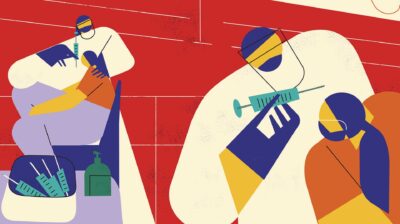Do I have to self-isolate with COVID-19 symptoms?
You need to self-isolate if you have Covid-19 in order to protect others around you from developing the illness.

Self-isolating means staying in your room and completely avoiding contact with other people. Restricting your movements means limiting your contacts and staying at home as much as possible.
Find out what to do if you are told you need to self-isolate or restrict your movements:
Self-isolation
Restricting your movements
What does it mean to self-isolate?
Self-isolating means staying in your room, and avoiding contact with other people entirely. This includes avoiding contact with the people you live with.
If you live with other people, it’s best to stay in a room on your own where you can open a window, if this is possible.
While self-isolating, try your best to follow these guidelines:
- Stay at home, in a room with a window you can open
- Keep away from other people – especially older people, anyone with a long-term medical condition
- Use a different bathroom to others in your household, if this is possible
- If it is not possible to use a different bathroom, clean any surfaces you might have come into contact with after using it, and open the window
- Use your own towel – do not share a towel with others
- Cover your coughs and sneezes using a tissue – clean your hands properly afterwards
- Wash your hands properly and often
- Clean your room every day with a household cleaner or disinfectant
- Wear a medical or respirator mask if you have to be in the same room as someone else
How long do I need to self isolate if I have symptoms?
You will need to start self-isolating as soon as you notice any symptoms of COVID-19. This is considered ‘day zero’ when counting your days in isolation.
You will need to self-isolate for five days. It’s okay to stop self-isolating if you still have a mild cough or if you are still experiencing changes to your sense of taste or smell after these five days, as these symptoms can linger for a few weeks.
Self isolating after a positive antigen test result
If you do an antigen test and the test result is positive, you will need to self-isolate for five full days from ‘day zero’.




